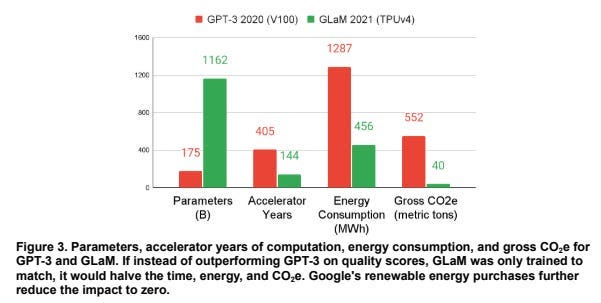The true environmental cost of asking ChatGPT everything | Dazed
At the start of the year, Ejay Hernandez posted a video saying: “You need to use ChatGPT for your grocery lists.” “It is a lifesaver,” Hernandez said in the video, which now has almost ten million views. Only five days later, he took it all back. “I didn’t know about the environmental implications,” Hernandez reasoned in a second video. The comments were then flooded with people claiming the same thing, writing that they had “no idea” that training one AI model produces the same amount of carbon dioxide as five cars in their lifetime. So, as more people turn to ChatGPT to plan their weeks, create fitness plans and even set their New Year resolutions, what is the true cost of our growing dependence on AI chatbots?
AI's Environmental Impact
January was a breakthrough month for those who, like Hernandez, hadn’t considered AI’s environmental impact. The wildfires across Los Angeles sparked a conversation online about how AI technology contributes to global warming – which then turned into an exaggerated rumour that ChatGPT “caused” the fires. There’s also the release of DeepSeek, a free AI-powered chatbot created by a Chinese startup that looks and works similar to ChatGPT, which has spun out the entire AI industry: it not only costs significantly less to build but also claims to use far less energy than its competitors (which could slash energy use).

During what could be considered a new peak in AI environmental panic, artist and activist Matt Bernstein posted a quote that went viral on Instagram: “Somewhere, the men who build AI chatbots are selecting the interiors for the rocketships they will use to leave earth and all of us burning with it”. It’s a grim picture, considering that Elon Musk and his Department of Government Efficiency are proposing to overhaul the US government using AI. However, Shaolei Ren, associate professor of electrical and computer engineering at the University of California, Riverside, cautions against making sweeping statements linking ChatGPT to any wildfires.
AI's Resource Usage
Ren calls the claim that one ChatGPT uses ten times the energy as a Google search “anecdotal” as they are still figuring out ways to measure these buzzy examples. “There’s no official data to confirm this number, but I think the general order is pretty reasonable,” he says. “It just highlights the much, much heavier resource usage of AI computing than other types of general workloads.” After all, all energy consumption has a negative environmental impact since the US still relies heavily on fossil fuels.
Air Pollution and Public Health Impacts
Ren's study found that training an AI model can produce air pollutants equivalent to more than 10,000 round trips by car between Los Angeles and New York City. “These particles can get into people’s lungs and create asthma, coughing, heart attacks and other bad health outcomes,” says Ren. The study found that air pollution stemming from AI disproportionally affects certain low-income communities (especially those close to power plants or backup generators at the data processing centres).

Dr Sasha Luccioni, AI and climate leader at Hugging Face, says she started out initially researching ways that AI could tackle climate change when she realised it was part of the problem. “There are really cool ways it can be used: everything from detecting deforestation from space to proposing new combinations of molecules for batteries and solar panels to tracking a specific species in a rainforest in real-time,” she says.
Future Implications of AI's Environmental Impact
Luccioni mentions the increased usage of AI in superfluous ways, like young people using ChatGPT for their schoolwork, which has doubled since 2023. Ultimately, every small action usage uses a relatively small amount of energy, but this accumulates when everyone uses ChatGPT for everything. Generative AI models, like ChatGPT, are a lot more power-hungry than extractive ones.

Hernandez's decision to stop using ChatGPT for grocery lists highlights the need for a comprehensive understanding of AI's impact on the planet. Researchers like Ren are hoping that with more specific data and an energy rating, people will start running a cost-benefit analysis in their minds before using AI extensively for mundane tasks.




















